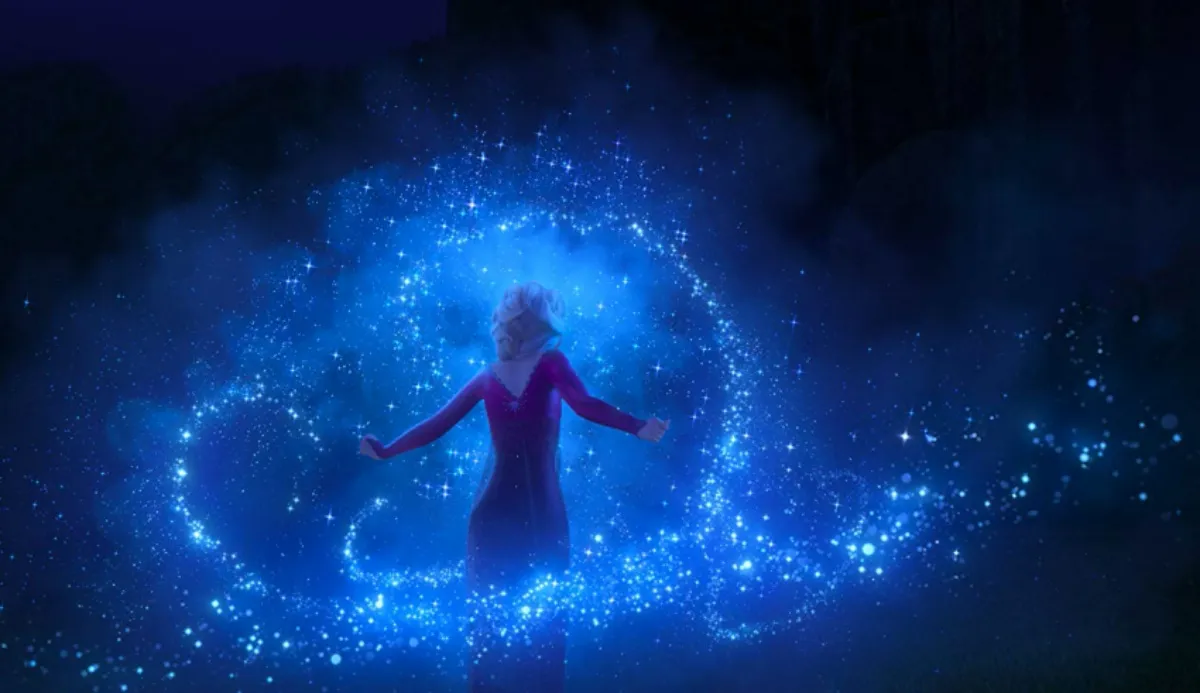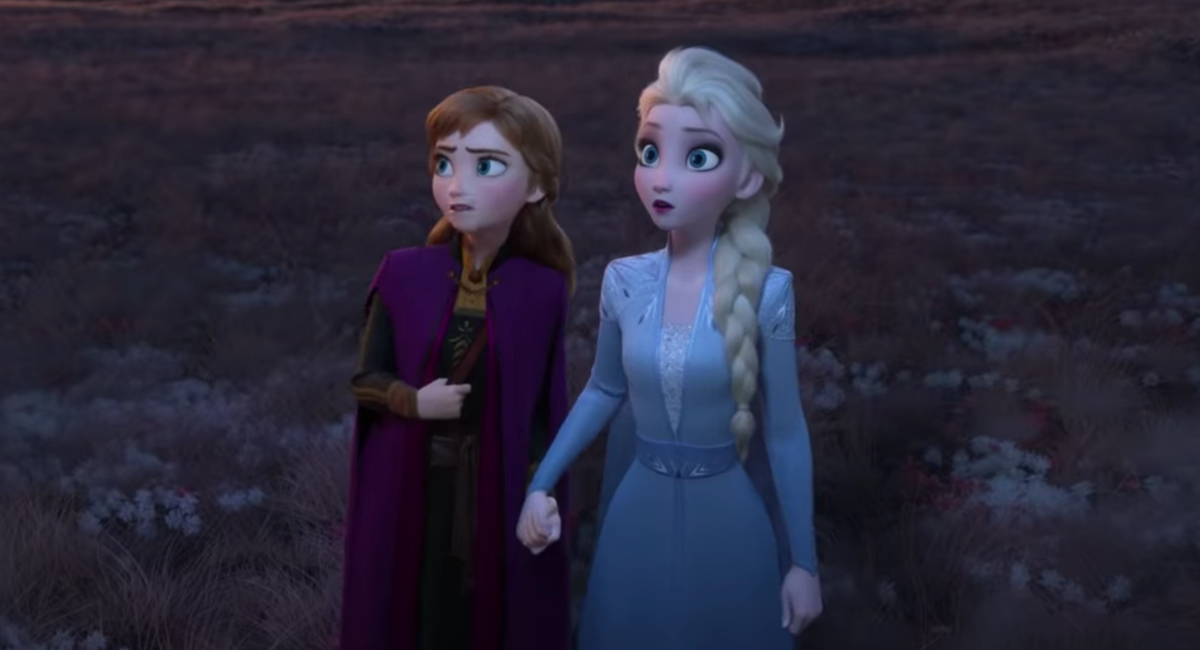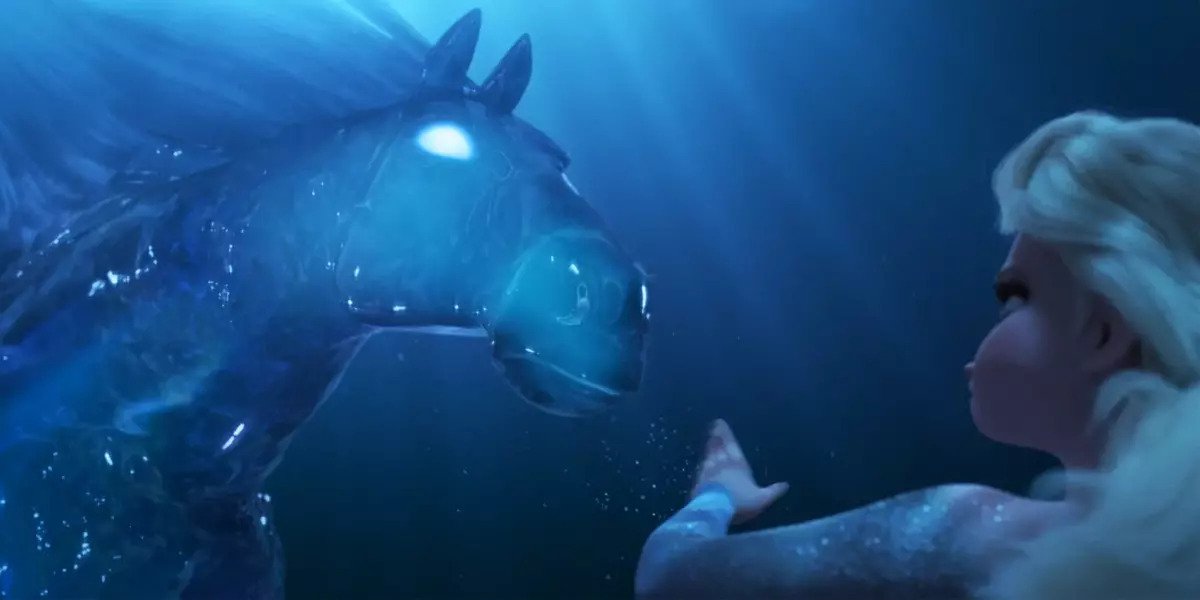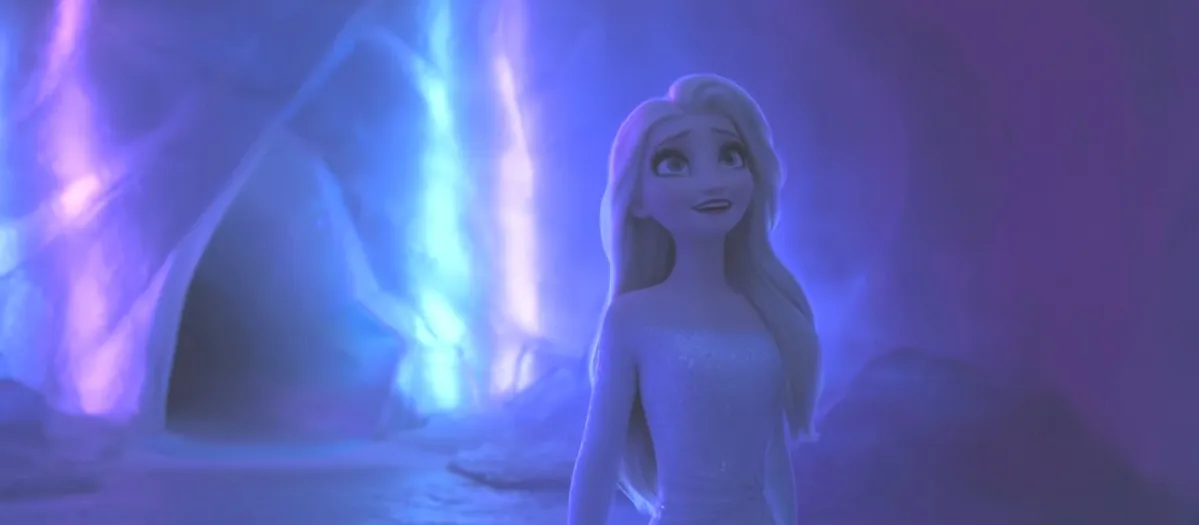When I say that Frozen II was a profound spiritual experience for me, I know that makes me sound a bit insane. But it’s nevertheless true and I know from conversations I’ve had in the week since the film’s release that I’m not alone. For me, it spoke to my own spiritual practice as a Wiccan and student of goddess lore but it works on a deeper level too. Frozen II is an amazing film that takes its heroine on a profound journey and in doing so it touches on elements of paganism and goddess archetypes in a way that’s rare and astonishing.
Fair warning, we are going to get into deep spoiler territory for this examination, so if you haven’t seen Frozen II, be warned.
When I talk about paganism, it means a few things and that works because the paganism of Frozen II exists on several levels. The term “pagan” was first used to refer to people who weren’t Christian, and “pagan religion” can mean anything from pre-Christian or non-monotheistic religion to specific religious beliefs and practices that still exist to this day in the form neo-Pagan religions, like Wicca, and we’ll be talking about the movie in both such terms.
Paganism in many ways is the opposite of Christianity – whereas the Christian tradition focuses on a single God who holds power and grants salvation, the pagan worldview sees not only many gods and goddesses, but also divine power in all things, especially nature. Paganism in the modern day is deeply rooted in recognition and veneration of the female divine often in terms of the Great Mother Goddess. In religions like Wicca, the divine power in everything and everyone is seen as something that can be bent and worked with, in what we call magic.

So, what has this got to do with a Disney movie? Well, Frozen II is all about magic and power and where it comes from; and it shows magic and female power in a way that fits with pagan teachings old and new. For one, Frozen II is all about the balance of the elements.
Frozen II has no real “villain,” which is cool. The conflict in the film begins when Elsa, called by a voice only she can hear, wakes the spirits of the enchanted forests and those spirits represent the elements familiar to anyone with a passing familiarity with modern Wicca or who’s seen The Craft: Earth, Air, Fire, and Water. This might also be familiar to fans of The Fifth Element…or Captain Planet…or Avatar: The Last Airbender.
The idea of the elements is ancient, and comes in all sorts of different forms, from Plato’s four elements to the similar five elements of Chinese Feng Shui (earth, wind, fire, wood, metal). The elements are the forces of the natural world and they exist in balance and that balance is what Frozen II is all about. It’s a balance that is out of whack because the people of Arendelle – more modern and disconnected from the Earth – murdered and manipulated the indigenous Northuldra, who live in harmony with the elemental spirits, and are closer to magic.
Elsa is magical and she goes on a magical journey to reveal the past and, along with Anna, restore the balance. The sisters’ journey is about realizing that they do not exist in opposition to nature, but as part of it and that its power must be respected and allowed to be free. Elsa confronts and tames three elemental spirits, all inspired by real mythology, in her quest…and Anna completes it. Anna doesn’t tame her elemental force – the earth giants – but she still works with them and that’s magic too.

Of course, there is a fifth element and the journey to discover and master it where Frozen II journeys into the unknown realm of The Goddess.
The Goddess in Wicca and neopaganism is many things: she’s a mother and we begin Frozen II as Queen Idunna sings her daughters to sleep with a lullaby recounting a legendary location called “Ahtohallan.” This river isn’t a real place or myth, but the idea of an in-between place where the elements meet as a spiritual nexus is a real feature of much mythology and paganism.
Idunna is named after a real goddess, Iduna, the Norse goddess of spring and keeper of the apples of immortality. It’s not a coincidence that Elsa’s journey brings her closer to her mother, who she learns was Northuldra and lived and worked with the spirits of nature and the four elements. Elsa is called to Ahtohallan by a voice she believes to be the fifth element, but what she discovers is so much more.
There is no bible or holy book in paganism, but there are certain texts that express, simply and beautifully, the essence of the Goddess and what she means and is. One of those is “The Charge of the Goddess” by Doreen Valiente and it applies so perfectly to Frozen II that it’s almost magic. In this work, the Goddess speaks to the seeker, the reader to tell them where to find her and what her essence is.
For I am the Soul of Nature, who giveth life to the universe; from me all things proceed, and unto me must all things return.
That’s Ahtohallan, the place where Elsa ends her quest. In the beautiful ballad “Show Yourself” she pleads to the divine female power that’s been calling her, asking “Are you the one I’ve been waiting for all my life?” But in Ahtohallan Elsa finds her past, connects with the divine spirit of her mother and discovers…the fifth element, the divine thing, is her.
And thou who thinkest to seek for me, know thy seeking and yearning shall avail thee not, unless thou know this mystery: that if that which thou seekest thou findest not within thee, thou wilt never find it without thee.
For behold, I have been with thee from the beginning; and I am that which is attained at the end of desire.
These words of the Goddess are the essence of the modern pagan teaching, that divinity and power don’t come from a distant god but from the divine within us. When Elsa and her mother sing: “Show yourself, step into your power,” they are sharing the same message. The greatest power is right there inside you.
Elsa reaches Ahtohallan by taming a water horse called Nokk, real figures of germanic and Scandanavian folklore. In doing so she channels the Celtic-Roman goddess Epona, a horse Goddess who brought both fertility but also served as a psychopomp guiding souls into another world, which is where Elsa must go on her heroine’s journey.

You’ve heard of “The Hero’s Journey” but there is a Heroine’s journey too, an archetype of myth – specifically goddess myths like that of Persephone – that involves a journey through the underworld and death to rebirth and that’s exactly what Elsa goes through. She (and Anna) must journey through their darkest moments. Anna is the one that completes that journey, step by step through the darkest moment in a literal underworld as she chooses to “Do the next right thing.”
Elsa and Anna find themselves and their power and journey through death itself, to be reborn. For Elsa it’s literal, and by claiming and embracing the power that was always inside her, she becomes and becomes an awesome, divine, magical woman…that is, a goddess.
“You are the one you’ve been waiting for,” is a powerful, essential Goddess’s message. It’s not new. In fact, it’s a fundamental sort of truth we’ve seen in other films with heroines’ journeys from the Wizard of Oz to Moana. But here, in this film, as a message of affirmation from a magical queen surrounded by the elements and goddess imagery, it’s especially powerful.
Frozen II, is a movie about the feminine divine. It’s about magic and power and elements, mothers, sisters, daughters and goddesses finding their way through the dark to restore balance and light. That may sound silly talking about a “kid’s movie,” but stories for children are often where we teach our most profound and important lessons. These are our myths in a new form, so of course, we’ll find a goddess or too there.
Perhaps I see a goddess in Elsa because I see myself in her, and thus, I see the divine in both of us. We are the ones we’ve both been waiting for.
(images: Disney)
Want more stories like this? Become a subscriber and support the site!
—The Mary Sue has a strict comment policy that forbids, but is not limited to, personal insults toward anyone, hate speech, and trolling.—










Published: Dec 1, 2019 11:31 am